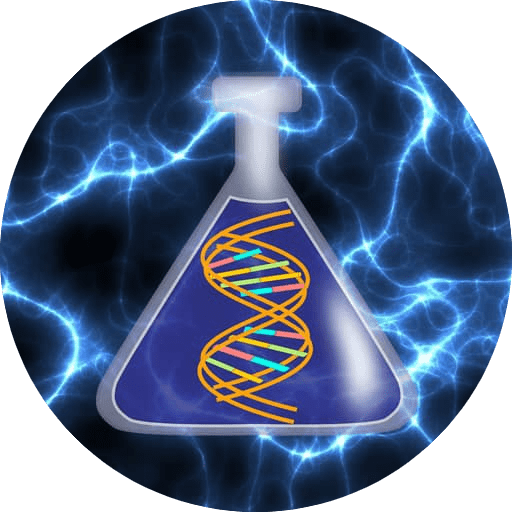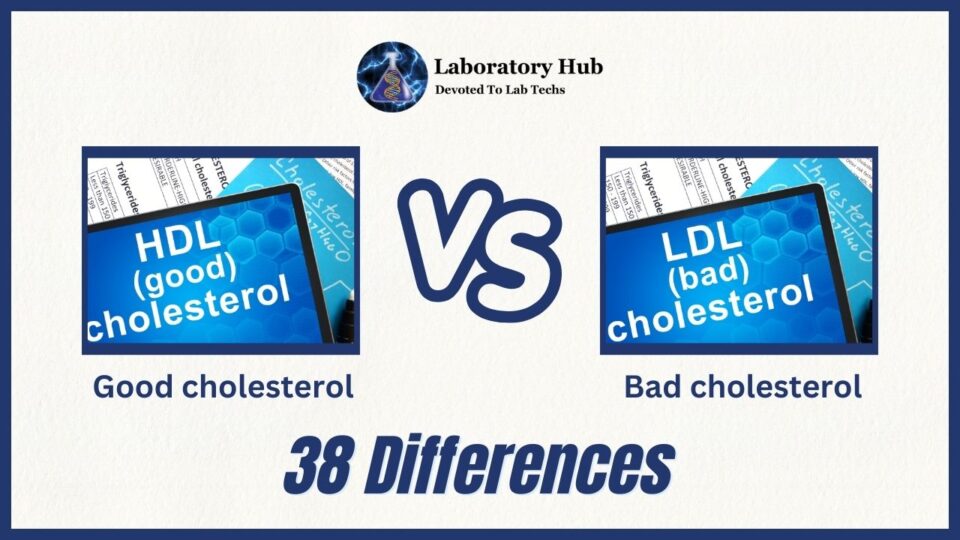The labels “good” and “bad” cholesterol are commonly used to refer to various types of lipoproteins that carry cholesterol in the blood. The effects of these lipoproteins on cardiovascular health vary. Although the labels “good” and “bad” cholesterol are oversimplified, they do convey the broad idea of their opposing effects.
GOOD CHOLESTEROL
High-density lipoprotein (HDL) cholesterol is regarded as “good cholesterol.” Because of its favorable impact on cardiovascular health, HDL cholesterol is frequently seen as good. HDL cholesterol protects the body by removing excess cholesterol from the bloodstream and transferring it to the liver for processing and elimination. This mechanism can reduce the risk of atherosclerosis (hardening and constriction of the arteries) and cardiovascular disease by preventing cholesterol buildup in artery walls.
HDL cholesterol functions as a scavenger, removing excess cholesterol from cells and tissues, including artery walls.HDL participates in the reverse transportation of cholesterol mechanisms. It transports cholesterol from the arteries to the liver, where it is processed and removed from the body.
HDL also possesses anti-inflammatory capabilities that can help protect blood vessels and prevent inflammation within artery walls. Higher HDL cholesterol levels have been linked to a lower risk of heart disease and stroke. According to research, every 1 mg/dL rise in HDL cholesterol reduces the risk of heart disease.
BAD CHOLESTEROL
The term “bad cholesterol” most commonly refers to low-density lipoprotein (LDL) cholesterol. LDL cholesterol is referred to as “bad” cholesterol because high levels of this cholesterol in the blood are linked to an increased risk of cardiovascular disease, specifically atherosclerosis and coronary artery disease.
LDL cholesterol is a type of lipoprotein that transports cholesterol from the liver to cells all throughout the body. Cholesterol is required for many body activities, including the formation of cell membranes and the production of hormones. However, an overabundance of LDL cholesterol in the bloodstream might cause complications.
High LDL cholesterol levels can lead to the development of atherosclerosis, a condition in which cholesterol and other chemicals build in the arteries’ walls, producing plaques. These plaques have the ability to narrow and harden the arteries, limiting blood flow and potentially leading to heart attacks or strokes.Elevated LDL cholesterol is regarded as a substantial risk factor for cardiovascular disease. The higher the LDL cholesterol level in the blood, the greater the chance of having heart disease.
Also read: Active Immunity vs Passive Immunity – 26 Key Differences
|
No. |
Aspect |
Good Cholesterol (HDL) |
Bad Cholesterol (LDL) |
|
1 |
Type |
High-density lipoprotein |
Low-density lipoprotein |
|
2 |
Function |
Carries cholesterol away from arteries to the liver for processing and removal |
Transports cholesterol to cells, can lead to plaque buildup in arteries |
|
3 |
Particle Size |
Smaller particles |
Larger particles |
|
4 |
Density |
Higher density |
Lower density |
|
5 |
Structure |
Contains more protein |
Contains more cholesterol and fats |
|
6 |
Origin |
Produced in the liver and intestines |
Produced in the liver |
|
7 |
Transport Direction |
Transports cholesterol away from arteries |
Transports cholesterol to arteries |
|
8 |
Atherosclerosis Risk |
Lowers risk of atherosclerosis (artery hardening) and heart disease |
Increases risk of atherosclerosis and heart disease |
|
9 |
Health Benefits |
Cardiovascular protection |
Cardiovascular risk |
|
10 |
Effect on Arteries |
Helps keep arteries clear of plaque buildup |
Can contribute to plaque accumulation |
|
11 |
Circulation Enhancement |
Enhances blood circulation |
May hinder blood circulation |
|
12 |
Relation to Heart Disease |
High levels associated with lower heart disease risk |
High levels associated with higher heart disease risk |
|
13 |
Cardiovascular Protection |
Helps protect against heart attacks and strokes |
Increases risk of heart attacks and strokes |
|
14 |
Triglyceride Impact |
May lower triglyceride levels |
Can increase triglyceride levels |
|
15 |
Liver Processing |
HDL transports cholesterol to the liver |
LDL delivers cholesterol to body tissues |
|
16 |
Cholesterol Removal |
Aids in removing excess cholesterol from the bloodstream |
Can contribute to cholesterol buildup in arteries |
|
17 |
Anti-Inflammatory Properties |
May have anti-inflammatory effects |
May contribute to inflammation |
|
18 |
Lifestyle Influence |
Can be influenced by exercise and healthy diet |
Can be influenced by diet and lifestyle |
|
19 |
Dietary Factors |
Healthy fats (unsaturated fats) can increase HDL levels |
Saturated and trans fats can increase LDL levels |
|
20 |
Risk Factors |
High HDL levels are generally beneficial |
High LDL levels are associated with risk factors |
|
21 |
Hormone Production |
Precursor for steroid hormone production |
Not directly involved in hormone production |
|
22 |
Role in Cell Membranes |
Participates in cell membrane structure and fluidity |
Not a major component of cell membranes |
|
23 |
Relation to Plaque |
Associated with reduced plaque formation |
Associated with plaque buildup in arteries |
|
24 |
Reverse Cholesterol Transport |
Facilitates reverse cholesterol transport |
Does not play a significant role in this process |
|
25 |
Estrogen Effect |
May be influenced by estrogen |
Estrogen may increase LDL cholesterol levels |
|
26 |
Lab Measurement |
Higher HDL levels are desired |
Lower LDL levels are desired |
|
27 |
Nutritional Influence |
Diet rich in monounsaturated fats and omega-3 fatty acids can increase HDL |
Diet high in saturated and trans fats can increase LDL |
|
28 |
Excretion Mechanism |
Excreted from the body through the liver |
Not a primary mechanism of excretion |
|
29 |
Statins Effect |
Statins may have limited effect on HDL levels |
Statins can lower LDL cholesterol levels |
|
30 |
Risk Assessment |
High HDL levels often considered protective |
High LDL levels often considered a risk factor |
|
31 |
Insulin Resistance |
May be associated with improved insulin sensitivity |
May be associated with insulin resistance |
|
32 |
Heart Disease Prevention |
May help reduce risk of heart disease |
May increase risk of heart disease |
|
33 |
Medical Interventions |
Increasing HDL is often a goal in managing heart health |
Lowering LDL is often a goal in managing heart health |
|
34 |
Clinical Focus |
HDL levels are assessed for heart health |
LDL levels are assessed for heart health |
|
35 |
Cholesterol Efflux |
Promotes cholesterol efflux from cells |
Can contribute to cholesterol accumulation in cells |
|
36 |
Genetic Influence |
Genetic factors can influence HDL levels |
Genetic factors can influence LDL levels |
|
37 |
Vascular Health |
Associated with improved vascular health |
Associated with increased risk of atherosclerosis |
|
38 |
Preventive Measures |
Focus on increasing HDL through lifestyle choices |
Focus on managing LDL through lifestyle choices |
Also read: Innate Immunity vs Adaptive Immunity- 35 Differences
Frequently Asked Questions (FAQs)
What are the advantages of having a high HDL cholesterol level?
High HDL cholesterol levels are linked to a lower risk of cardiovascular disease, heart attacks, and strokes.
What is the ideal level of HDL cholesterol?
An HDL cholesterol level of 60 mg/dL or above is generally considered optimum. When evaluating HDL levels, it is crucial to consider total cardiovascular risk factors.
What role does LDL cholesterol have in cardiovascular health?
LDL cholesterol transports cholesterol from the liver to cells all over the body. Excess LDL cholesterol can cause plaque to form in arterial walls, raising the risk of artery blockages and cardiovascular events.What role does LDL cholesterol
Can I lower my cholesterol levels solely with food and exercise?
Adopting a healthy lifestyle that includes a balanced diet, frequent exercise, and weight management can have a good effect on cholesterol levels in many circumstances. Genetics and other factors, however, can also play a role.
How frequently should I have my cholesterol levels checked?
As part of your preventive healthcare regimen, it is recommended that you have your cholesterol levels examined on a regular basis. Individual risk factors and medical history may influence the frequency.
What if my cholesterol levels are higher than the prescribed level?
Consult a healthcare expert if your cholesterol readings are above the suggested amount. They can offer advice and make appropriate lifestyle recommendations.
User Review
( vote)
Laboratory Hub aims to provide the Medical Laboratory Protocols & General Medical Information in the most easy to understand language so that the Laboratory Technologist can learn and perform various laboratory tests with ease. If you want any protocol to be published on Laboratory Hub, Please drop a mail at contact@laboratoryhub.com. Happy Learning!

